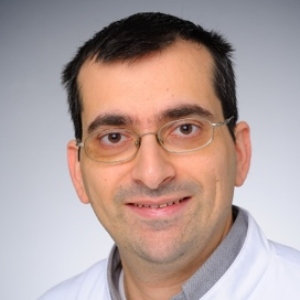Abstract:
Intrathecal drug delivery systems are implanted pumps that target pain relief or anti-spasm medication to an area of the spine that relays signals between an affected area of the body and the brain. Persons with chronic pain or muscle spasms may be considered for such a device if, over time, the medications they have been taking have become less effective, or the side effects more difficult to tolerate. Although receiving an implanted pump is not a cure, using one may allow patients more symptom relief, participation in daily activities, and better rest. With these systems, medication is immediately released into the fluid surrounding the spinal cord and directly reaches the nerves in the spinal cord that are responsible for symptoms, such as perception of pain. For this reason, much lower amounts of the active medication, such as morphine or baclofen, are needed than when medication is taken by tablet or intravenous infusion. Compared to medication taken by mouth, an intrathecal pump usually only requires 1% of the dose. Not only is direct delivery more effective, it also avoids, to a large degree, overall side effects that occur with medication taken by mouth or injected into the bloodstream through intravenous infusion. The presentation will describe the implantation of such systems, highlight the differences between fixed- & variable-rate pumps, underly the significance of various infusion modii, describe the possible associated risks & complications, and illustrate how refills are generally done.
Biography:
Dr.Georgios Matis is a senior consultant for neurosurgery. He leads the chronic pain / spasticity sector of the Department of Stereotactic & Functional Neurosurgery in the University Hospital of Cologne. He has been trained in Greece (General University Hospital of Alexandroupolis, G. Papanikolaou General Hospital of Thessaloniki & 417 Army Equity Fund Hospital of Athens), USA (Department of Neurosurgery, Weill Cornell Medical College, New York, NY), Switzerland (Department of Neuroradiology, University Hospital of Zurich, Zurich) and Germany (Department of Stereotactic & Functional Neurosurgery, University Hospital Cologne, Cologne). Dr. Matis is a member of two medical associations (Thessaloniki, Greece & North Rhine, Germany) and also a member of the German Neuromodulation Society (DGNM) and the International Neuromodulation Society (INS). He serves as reviewer for many international journals and is Editorial Board member for Neuromodulation: Technology at the Neural Interface and Interventional Pain Medicine and Neuromodulation. He holds the position of Editor-in-Chief of the Internet Journal of Neurosurgery. Dr. Matis has published many articles in Greek and international Pubmed-indexed journals and hold many lectures as invited speaker in numerous international congresses and webinars. At the same time, he is Public Education Committee member of the International Neuromodulation Society. Dr. Matis is involved in many international clinical studies and has been active as instructor for many colleagues in Germany and abroad. He is also an active member of the medical advisory board of the German CRPS Support Group and member of several online consultation platforms. He is actively involved in social media trying to raise awareness about spinal cord stimulation and neuromodulation.




